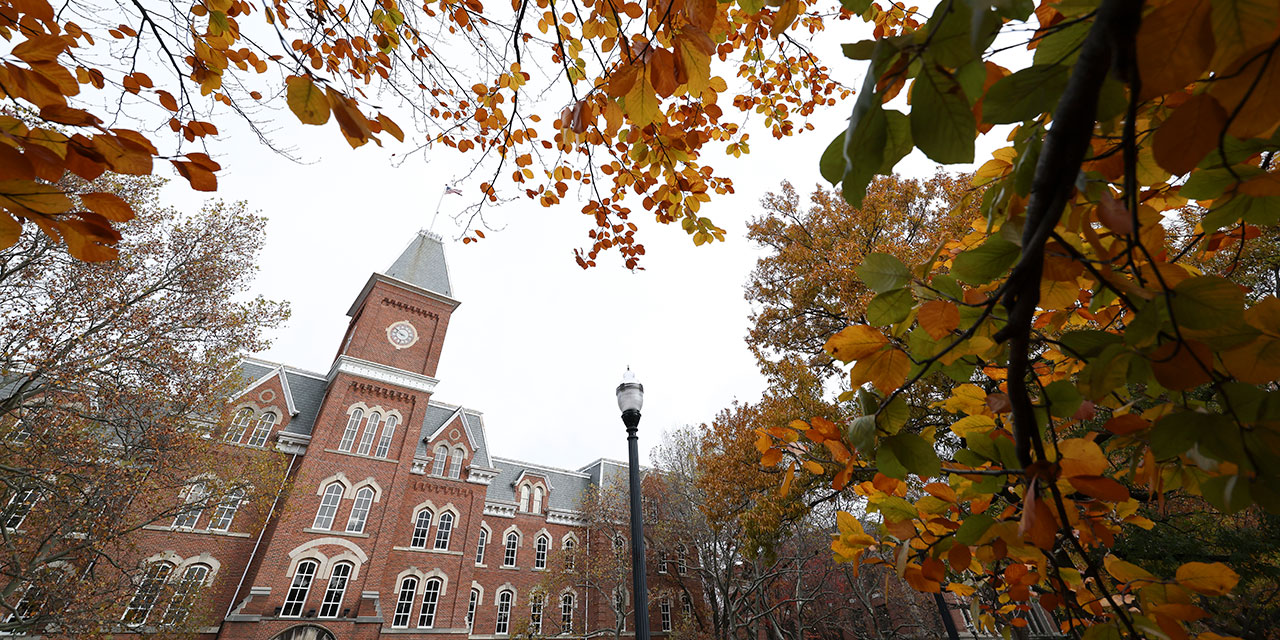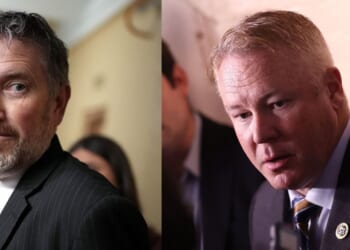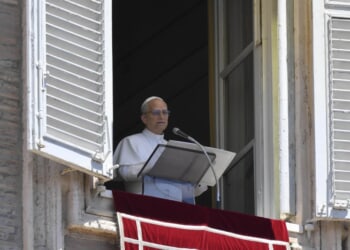
The challenge of higher education reform can be boiled down to one issue: the talent pipeline. If we can reconfigure the academic talent pipeline and ensure that those who believe in the classical mission of the university both choose academia and prosper in it, then the reform movement will succeed. If not, no list of policies, from securing campus free speech to dismantling DEI offices, will restore public trust in our universities.
Academia’s pipeline problem has deep roots. For more than a decade, universities have created special career paths for scholars whose mission is to advance the cause of social justice. In my recent City Journal series, I interviewed more than a dozen scholars and dug into hundreds of pages of public records to unpack this scholar-activist pipeline.
Finally, a reason to check your email.
Sign up for our free newsletter today.
The series shows how administrators have used clever fellow-to-faculty hiring schemes to strong-arm departments and hire hundreds of professors throughout the country. Their tools include: undergraduate, graduate, and postdoctoral fellowships; faculty “cluster hiring” programs; faculty support grants; and administrator development programs. All have enjoyed ample funding from private foundations and the federal government.
On paper, these programs aim to promote demographic diversity. In practice, they heavily favor scholars whose research demonstrates a commitment to social justice, ensuring that a critical mass of scholar-activists advance through the academic ranks.
The rise of this scholar-activist pipeline helps explain why public trust in higher education has plummeted. Identity politics, progressive conformity, and “tenured radicals” have been around for decades. Yet, ten years ago, 57 percent of Americans expressed high confidence in colleges and universities, while only 10 percent said that they had “little or none.” Today, high trust has dropped to 36 percent, and low-to-no-confidence has risen to 32 percent. What changed?
Over the past decade, universities invested heavily in ideologically charged hiring schemes: Ohio State’s Race, Inclusion, and Social Equity (RAISE) Initiative, the University of Virginia’s Race, Place, and Equity Program, the University of South Carolina’s Bridge-to-Faculty Program, the University of Colorado Boulder’s Faculty Diversity Action Plan, and Texas A&M’s Accountability, Climate, Equity, and Scholarship (ACES) Faculty Fellows Program. This is just a sample.
These programs have been more consequential than any oversized DEI office could be. Over the course of a decade, the University of Michigan’s Collegiate Fellowship Program alone—one of the school’s many equity-focused hiring programs—hired at least 50 professors, the equivalent of a robust academic department. These professors will edit academic journals, weigh in on contemporary issues, hire colleagues, and sit on tenure committees, all while enjoying far greater professional protections than any administrator.
Many faculty members hired through these programs espouse views on the fringe of progressive politics. Some seem almost satirical, like the Rutgers University professor who lists a research interest in “undocuqueer episteme.” Others are more troubling, using their positions to advocate for boutique faculty lounge causes like police abolition, denying the reality of biological sex, and celebrating Hamas’s October 7, 2023, attack on Israel.
While the scholar-activist pipeline was being built, a substantial number of universities embraced the use of diversity statements for all faculty hiring—a practice virtually guaranteed to weed out conservatives, classical liberals, and others not inclined to recite the approved mantras on race and oppression. One survey of faculty job listings discovered that 19 percent required diversity statements. Another found that 45.6 percent of large universities listed diversity criteria in their tenure standards.
Ideologically charged hiring schemes and diversity statements have had a major effect on the pool of academic talent. Many young, smart, heterodox thinkers simply avoid the academic career path entirely. For many of those best suited for the job, academia looks like a bad career choice. Meantime, scholars who openly declare that their work “advances an anti-capitalist, prison abolitionist agenda” win lavish funding on every rung of the career ladder.
Not everyone within academia is on board with this transformation. While universities have circled the wagons in response to President Trump’s demands, a growing constituency of professors and university leaders share some of the administration’s key concerns. In a recent survey of UC Berkeley professors, a majority said external critiques of academia warranted action (only 16 percent said that they did not). Even as he announced a lawsuit over the Trump administration’s funding freezes, Harvard president Alan Garber declared that the university must “ensure that the university lives up to its ideals” by adopting policies that reaffirm “a culture of free inquiry, viewpoint diversity and academic exploration.”
Yet, the scholar-activist pipeline can’t be undone by mandate. The solution is more complex than “hire more conservatives.” In many fields, there just aren’t enough conservatives to hire. Harvard’s anthropology faculty, for example, won’t reach 50 percent conservative any time soon—let alone 15 percent. Reformers find themselves with a pipeline problem.
Fortunately, the scholar-activist pipeline offers more than a diagnosis: it gives us a case study and model for reform. Social justice advocates embraced the task of “transforming the professoriate of the future.” Universities, foundations, and lawmakers spent years laying groundwork. They produced research outlining the most effective tools. They funded experimental administrative projects and personnel development programs. The National Science Foundation poured millions into the Alliance for Graduate Education and the Professoriate. Giant philanthropies, such as the Mellon Foundation and the Howard Hughes Medical Institute, doled out similar sums. Many universities adopted equity-focused personnel initiatives on their own.
In the end, this network provided ample support at every node of the academic career path. The results speak for themselves.
As reformers, our task looks similar: a multidecade personnel-building project, requiring long-term coordination between university trustees, private donors, researchers, policymakers, and reform-minded faculty. Every initiative and policy proposal should be interpreted through the lens of the talent pipeline. It’s time to furnish a career path for those who espouse the truth-seeking mission of academia.
Reformers haven’t come close to matching the scholar-activist pipeline. Consider just one of the Mellon Foundation’s many programs: the Mellon/ACLS Dissertation Innovation Fellowship. It provides a livable stipend to 45 graduate students each year. There’s simply no equivalent stream of funding that would attract conservative graduate students or even graduate students doing traditional academic work.
Conservative-friendly student programs usually involve intellectually stimulating summer seminars, but these often lack an emphasis on career development. Again, looking at the progressive model is instructive. The Mellon Mays Undergraduate Fellowship and the Department of Education’s McNair Scholars Program, for example, which together fund fellowship programs at hundreds of universities, offer individual mentoring, support for graduate school applications, and a $5,000 stipend for students to spend a summer writing. Donors and federal agencies can learn from these initiatives.
In the near term, reformers should be laser-focused on dismantling the scholar-activist pipeline. This does not mean shutting down research on race and oppression or firing individual professors. Rather, it means targeting discriminatory personnel-building programs.
My reporting shows that viewpoint and racial discrimination go hand-in-hand. In an email regarding a large-scale cluster hire, one University of New Mexico professor quipped: “I for sure don’t want to hire white men.” In an internal report, one Ohio State search committee proudly described how it chose to interview only black finalists. At the University of Colorado Boulder, departments hiring through the Faculty Diversity Action Plan program promised in writing to hire professors from specific racial groups.
This is especially the case with the now-ubiquitous network of fellow-to-faculty hiring programs. In a federal grant proposal, University of Michigan administrators boasted how, for its Collegiate Fellowship Program, “a high percentage of fellows (93%) with demonstrated commitments to DEI come from traditionally minoritized groups.” The UC system’s President’s Postdoctoral Fellowship Program (PPFP) has been hailed as the “largest and most influential academic pipeline program of its kind in the nation.” In a funding proposal, the system openly brags about PPFP’s disparate impact. The program’s 2024 cohort includes no white men.
Subjecting these programs to maximal legal scrutiny could advance reform more than any standoff with individual institutions. The Department of Justice should pay especially close attention to funders like the Mellon Foundation. The vast network of fellow-to-faculty hiring schemes—more than two dozen coordinating through the University of California’s Partnership for Faculty Diversity—likewise merits further investigation.
The activists who transformed American higher education understood something fundamental: it’s all about the pipeline. With a clear mandate to fix our universities, reformers should adopt the same motto.
Photo by Aaron M. Sprecher/Getty Images
Source link
















